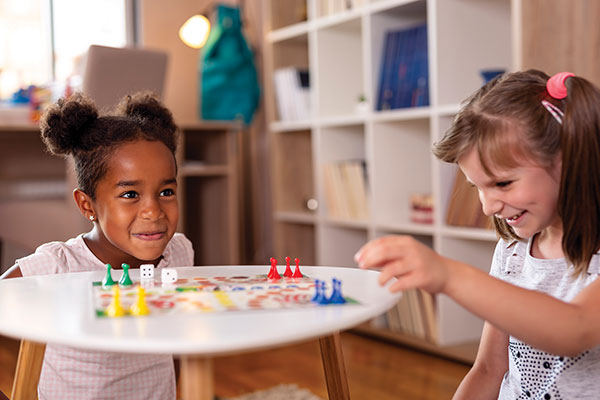(Family Features) Being ready for kindergarten is about far more than writing names and reciting the ABCs. It is also about building a foundation for deeper conceptual thinking, curiosity, creativity and social and emotional skills that can help children during their early school days and also in life.
For parents, this transition can be nerve-wracking and raise questions about how to best prepare their children for the next step in their educational journeys.
Dr. Lauren Starnes, senior vice president and chief academic officer at The Goddard School, and Lee Scott, chairperson of The Goddard School’s Educational Advisory Board, recommend helping children prepare for kindergarten through:
Building Strong Routines and Foundations for Learning:
- Language and literacy: Practice writing by making place cards for the dinner table. For younger children, it can be the first letter of each person’s name or fun scribbles on the card. Early scribbles are part of developing writing skills.
- Mathematics: Count while you work. Ask your children to put away toys. As they work, you can count the toys together.
- Science: Make yard cleanup fun. As you clean the yard, talk about the leaves and why they turn colors and fall to the ground. Pile them up and jump in.
- Executive function: Incorporate your children in planning for the family. Help your children stay organized with a daily or weekly chart. Have your children make the chart with you. For younger children, you can use drawings or pictures instead of words.
- Creative expression: Sing and dance while you work. Make up songs or repeat favorites as your children go through a few basic chores such as putting clothes away.
- Social-emotional development: Build a sense of responsibility and caring for others with real or pretend pets. Take the dog for a walk, feed the cat or water the pet rock. Taking care of a pet can help children develop a sense of responsibility and empathy for others.
- Healthy development and well-being: Daily routines help your children practice fine motor skills while doing a few chores, such as setting a table, helping you cook by mixing or stirring, putting their clothes on or brushing their teeth.
Incorporating Playful Experiences:
 Puzzles: Solving puzzles supports the development of skills such as concentration, self-regulation, critical thinking and spatial recognition.
Puzzles: Solving puzzles supports the development of skills such as concentration, self-regulation, critical thinking and spatial recognition.- Board games: Playing games provides a number of benefits for children, including supporting memory and critical thinking, helping them learn to take turns and count, and developing early language skills.
- Blocks: Block building supports creativity, cognitive flexibility, planning and organization. Take some time to build with blocks using different shapes and colors.
- Clay: Children need to develop fine motor skills beyond using devices. Few things are better for developing fine motor skills than modeling clay. Learning to sculpt with clay also builds creativity, artistic expression and strategic thinking.
- Recycled materials: Inspire creativity by finding things around the house to build with, such as cardboard, paper, paper towel rolls and plastic bottles.
For more actionable parenting insights, guidance and resources – including a webinar with Scott focused on kindergarten readiness – visit GoddardSchool.com.
Photos courtesy of Getty Images
Source:







